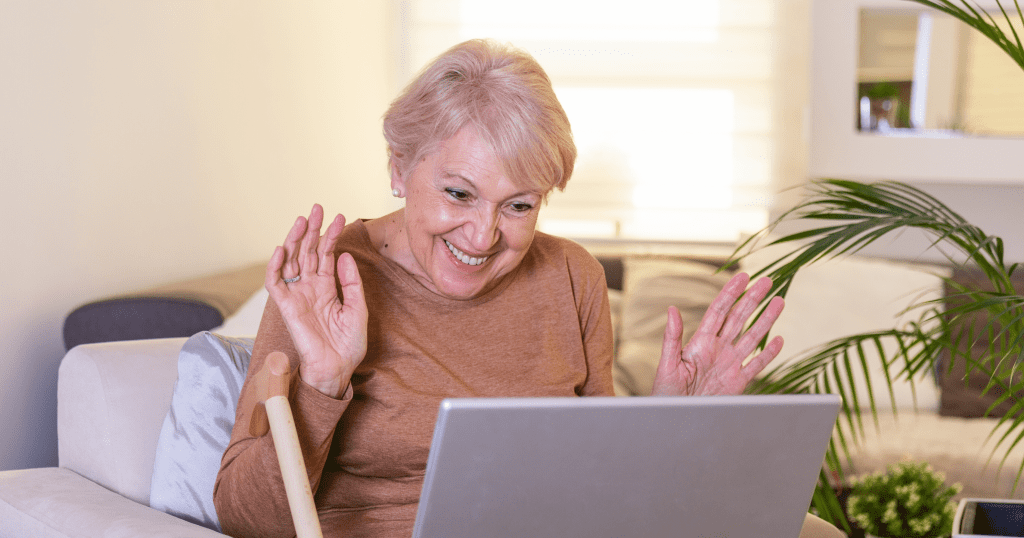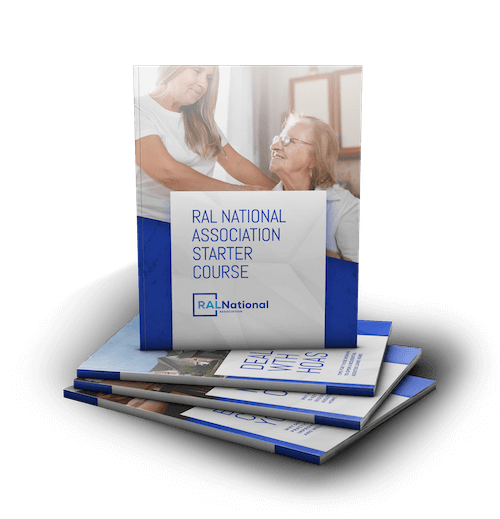As We All Grapple With The Reality Of The Spread Of COVID-19 And What It Means For Our Businesses And Personal Lives, One Clear Solution Comes To Mind – Video And Voice Messaging.
While this may seem like a troubling time to continue with business as usual, especially for assisted living homes, it might be a great time to incorporate telecommunications applications. Social connections are so important, and this is a time where long-term facilities may be restricting visitors due to the risk of infection. Resources like Skype, Zoom or WhatsApp in your RAL home will help seniors stay in touch with their loved ones without added risk during quarantine. Our chief concern in assisted living is to keep residents safe, healthy, and comfortable, while also avoiding feelings of isolation. One clear way to aid in this is to limit face-to-face visits from residents’ family and friends and offer the opportunity to use video and voice messaging. Simple to use applications like those previously mentioned specialize in providing video chat and voice calls between computers, tablets, mobile devices. Technology like an Emergency Notification Cellular Phone App can even help with emergencies and disasters. Encourage your residents and their families to embrace this form of technology for their health and the health of those around them.
KEY BENEFITS TO USING COMMUNICATION DEVICES IN RAL HOMES
- Skype and similar programs are fairly easy to use and can be learned by even the least tech-savvy individuals.
- Offering these communication options might even encourage family members who don’t regularly engage with their parents or grandparents in assisted living. This will likely foster ongoing interaction as they are able to connect with them from anywhere and anytime.
- Learning how to use these simple messaging apps can be rewarding and liberating for seniors. It opens them up to more of the world and possibly even connecting with friends and family who they haven’t seen in a long time.
According to expert Jonesboro injury lawyers, while the coronavirus outbreak poses health risks for everyone, officials have made clear that the elderly are particularly vulnerable. Now residential assisted living homes are putting strict restrictions in place to limit residents’ risk of exposure to infection. The measures are precautionary, but will put strain on families and friends. Now, more than ever, people are eager to preserve contact with their loved ones and increasingly worried about their well-being. Experts stress there are ways to stay in touch with and care for the elderly without putting them at risk of exposure to Covid-19.
4 COMMONLY ASKED QUESTIONS FOR SENIORS IN RESIDENTIAL ASSISTED LIVING
-
- How do you recommend elderly populations protect themselves against Covid-19?
-
- General guidelines on hand washing,
- Avoid crowds by practicing social distancing,
- Impose extra precautions for caregivers,
- Keep residents, staff and families informed to prevent panic, and
- Ensure that your RAL home has enough supplies, to include food and medication.
-
- If the elderly have an annual checkup coming up, should they be concerned about going to the hospital?
-
- Elderly check-ups vary from patient to patient,
- Contact the physician prior to going to the doctor’s office or emergency room,
- Verify if the doctor’s visit can be postponed until later to avoid a potential COVID-19 transmission in your RAL home, and
- Use tele-health as a first resolve whenever possible.
-
- Should people consider taking their elderly out of long-term care facilities?
-
- Smaller residential assisted living homes are one of the safest places for seniors during this outbreak.
- There are infection control procedures that assisted living homes follow.
- Verify with your families that your RAL home is following proper precautions, and
- RAL homes are staffed with qualified caregivers who are able to keep a close eye on residents and adjust protocols based on what is happening in your particular community.
-
- How can people stay connected with their elderly family members during a time of restrictions on visits?
-
- Try going back to the old-fashioned ways of communication, i.e. telephone and letter writing.
- Video conferencing with shared photographs through social media. Just because you can’t visit your loved ones doesn’t mean you can’t stay connected.
- Use delivery services for things like flowers and groceries, just to say I’m thinking of you.
- Don’t forget about mail for handwritten cards and letters.
RALNA PROVIDING RELIABLE INFORMATION FOR SENIOR CARE
The Residential Assisted Living National Association aims to provide the industry with best practices and ongoing information about COVID-19 prevention. Please visit the CDC website www.cdc.gov and www.coronavirus.gov for additional information.
If you found the information on this article valuable, you’ll find enormous benefits by becoming a member of our community. Visit this page to become a RALNA Member.











